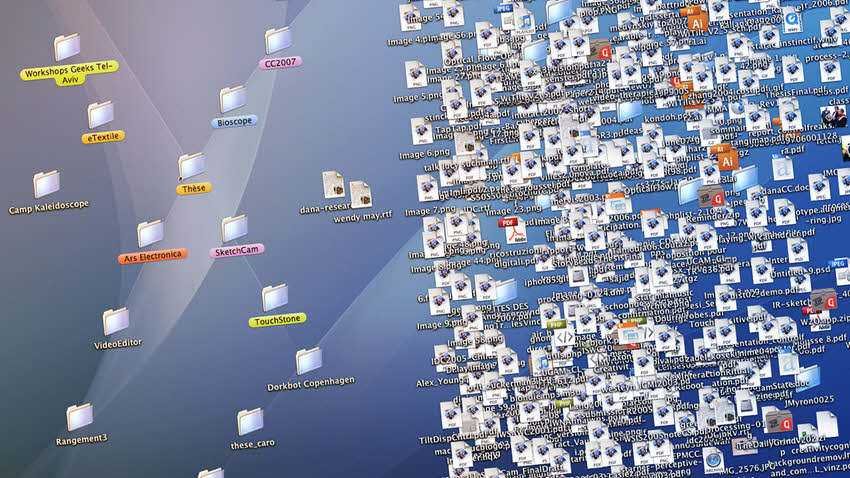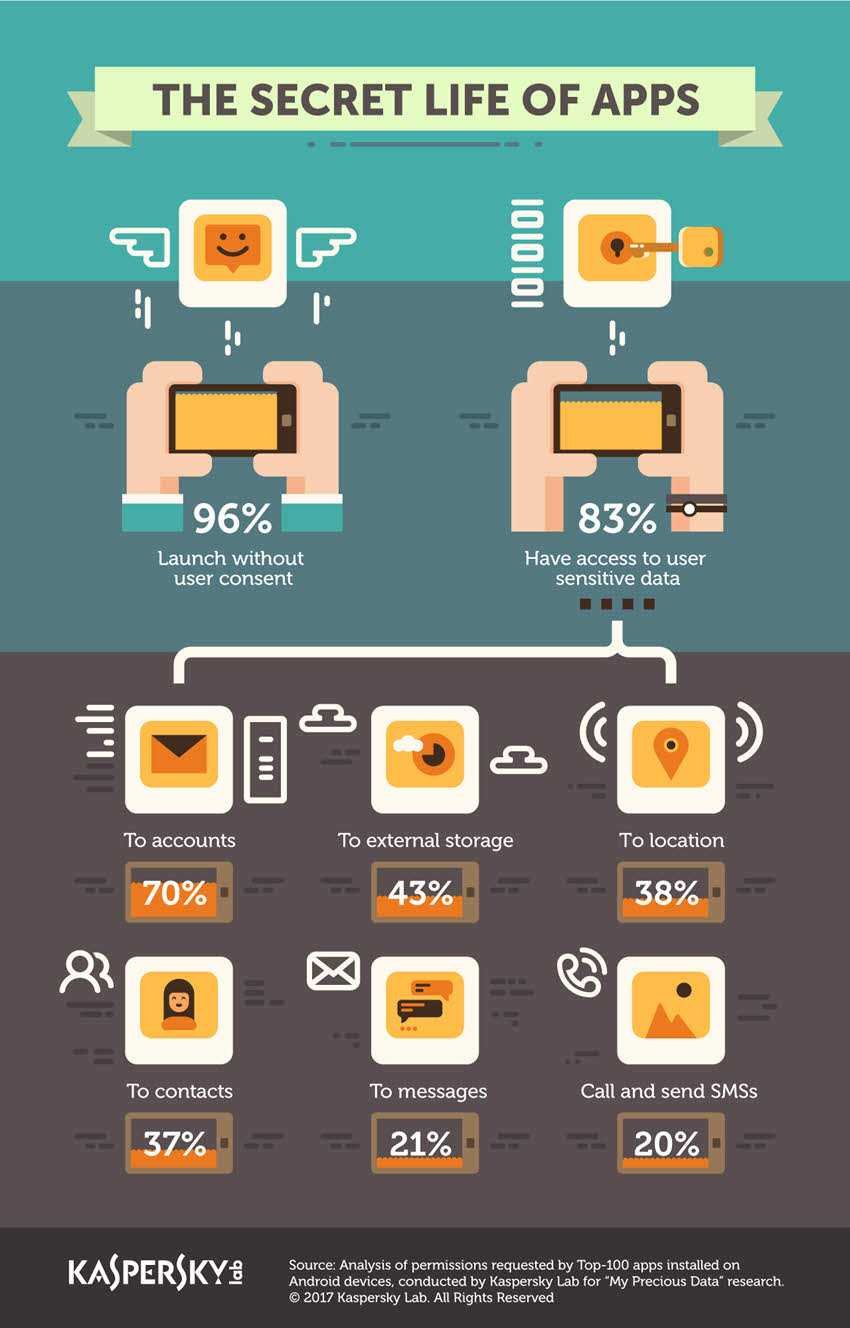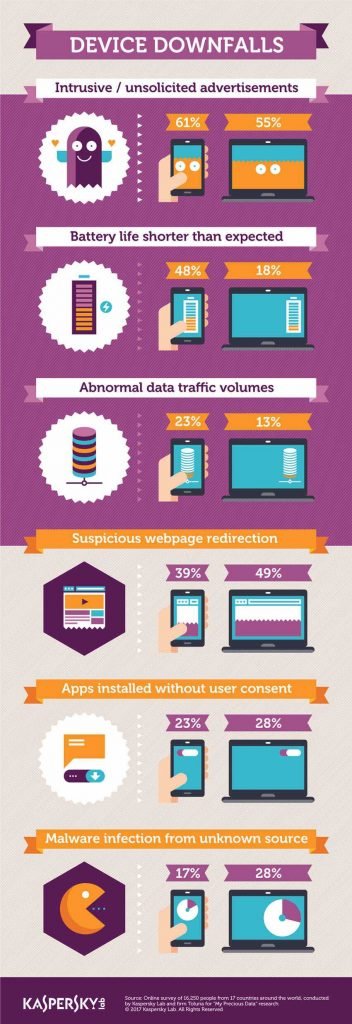Kaspersky Lab: Digital "clutter" is increasing due to both the explosion in app usage and the benefits of increased device memory capacity. But poor application maintenance leaves devices vulnerable to security-related threats. A new research of Kaspersky Lab reveals the magnitude of the digital "clutter" problem faced by Internet users worldwide.
The survey revealed that users typically install 12 Android apps each month while deleting just 10, which means users are adding 2 apps to their devices monthly. With more applications being installed continuously on devices, effective management is important to prevent digital "clutter". However, we discovered that only half the users (55%) are refreshing and reviewing the contents of their device by deleting unused documents and applications.
The findings are part of a new research conducted by Kaspersky Lab called "Digital Clutter" and its risks (Digital Clutter and its Dangers). The study is based on data from a unique combination of an online survey conducted in 17 countries, statistical analyzes by Kaspersky Security Network (KSN), and a Kaspersky Lab internal test application performance test.
Accumulation of digital "clutter" means that wiping and upgrading of applications is more important than ever to combat malware that uses application vulnerabilities to break the whole device. However, the survey found that only a quarter (28%) of users upgrades apps on their device when they are forced to do so while 10% of users try not to make any upgrades.
One of the key threats is that apps themselves can put user and device data at risk through their daily activity. Kaspersky Lab's technical findings show that out of 100 Android apps that users can manage (install and delete), 83 have access to the user's sensitive personal data, such as contacts, messages and data, while still being able to make phone calls and send SMS messages.
Click to enlarge
Additional findings from the KSN have shown how apps can work without the user's permission. On average, users have 66 apps on their Android device. By testing a representative 66 sample from the most popular Android apps, 54 started in the background, without users touching them, consuming on average 22Mb a day without any user interaction.
App settings give users a degree of control over anything the application can access or interact with. However, the survey found that only 40% of people deliberately adjust the settings of each app on their smartphone. In addition, only 32% may refuse to install a mobile application if it is not satisfied with the content of the license.
Andrei Mochola, Head of Consumer Business Kaspersky Lab, stated:
"Users are exposing their devices and personal data to digital threats by failing to take simple but essential care of their device, 'cleaning' and updating their software and apps, adjusting settings and uninstalling apps that are no longer used. The accumulation of digital "clutter" on our devices means we've increasingly neglected the maintenance of these apps. But we do it at our own expense, because this can lead to a wide range of problems, such as device malfunctions, battery life issues, or malware "infection". Apps have access to some of the most sensitive and personal data we have on our devices, and users are often unaware that this information is being shared. We invite users to put their digital houses in order. Just as a clean, tidy room brings fresh air into your home and life, in the same way, a tidy computeras or smartphone results in a more enjoyable and, above all, safer experience. "
In order to combat "clutter" and protect their personal data, Kaspersky Lab advises users on the following:
- Understand what is stored in - take some time to check your devices and practice what information is stored in which applications and files on your device
- Clean your device - spend some time putting your digital home in order, through regular clearing and updating of information stored on your devices
- Keep your device software and applications up to date - regular updates should be made as close as possible to the release of new releases
- Use special software – For example, prelettersoftware cleaners, like the one in Kaspersky Lab's flagship products, scan all the applications installed on your device and alert you to those that present a potential risk or are rarely used.






